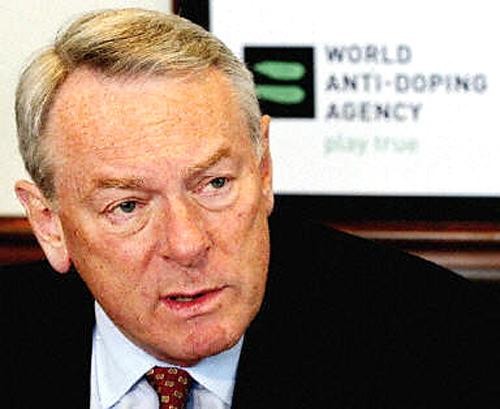WADA chief interviewed about doping, new book
By Mark Zalewski, North American Editor The head of the World Anti-doping Agency (WADA) Dick Pound...

By Mark Zalewski, North American Editor
The head of the World Anti-doping Agency (WADA) Dick Pound was interviewed on the National Public Radio program Fresh Air yesterday due to the publication of his new book, "Inside Dope: How Drugs Are the Biggest Threat to Sports, Why You Should Care and What Can Be Done About Them." Pound, a controversy among sports around the globe for his approach to stemming the tide of drugs in sport, responded to his characterization as well as discussing the past and current problems facing WADA.
When asked why he helped form WADA, Pound said, "Nobody trusts the individual sports to go after their riders or players, and nobody trusts particular countries to be hard on their own athletes if they catch them doping and nobody trusts the IOC anymore. We needed an independent agency not controlled by any of these stakeholders to kind of take charge of this on a world level."
Pound's fitting for a black hat by many in the world of sport was put into words in a New York Times interview earlier this year in which he said, "I'm happy to be known by the folks that hate me." He further explained the reason why he approaches the job the way he does.
"It's really part of the job description. I mean, what you're dealing with are pretty clear rules that for the most part have been adopted with the interest of sport and the health of athletes. There's a lot of people who are not much interested in having a light shone or the carpet lifted, so it is confrontational, and the people who scream are not the athletes who are playing fair, and the visceral stuff is a way of trying to get the public at-large to understand that this is a real problem. `Do you want your child to have to become a chemical stockpile in order to be successful at sport simply because there's a whole bunch of sociopaths out there that are prepared to ignore the rules?' They say, `Well, no. That's not what I want.'"
Pound also cited the procedural limitations he faces in addition to the criticisms he hears from inside sport. "We know who the athletes are. We know where they are. We know pretty well what they're doing. We know who their coaches are. We know who the bad coaches are. But there are a lot of things we can't do. We can't prevent trafficking in drugs. We can't enter into premises and seize evidence. We can't compel the giving of evidence under oath and a whole bunch of things that only governments can do. So the solution has to be a combination of sport plus the public authorities."
The interviewer also asked Pound about the criticisms connected with his public comments about specific doping cases, as well as what the standard of proof should be. "I have to say what's out there," said Pound. "Circumstantial evidence is nevertheless evidence, and what I've always been very careful to say is that she has not been charged with an anti-doping violation. My view is that this is not a criminal matter. This is a sport. These are all sport rules and the standard of proof that has evolved in the sport jurisprudence is what's called a comfortable satisfaction with the evidence. So it's less than proof beyond all reasonable doubt and higher than a mere balance of probabilities."
Get The Leadout Newsletter
The latest race content, interviews, features, reviews and expert buying guides, direct to your inbox!